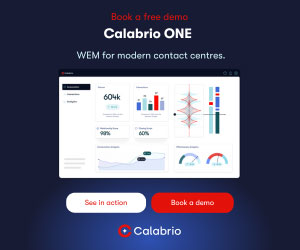We provide an eight-step process for writing an IVR script, while providing some key do’s and don’ts along the way.
Eight Steps to Writing an IVR Script
Step 1 – Start With the End in Mind
While this may sound contradictory, it is important to think about the quickest way to get the caller through to the right advisor, with the right skill set, with the least amount of effort.
So, Steve Hindley, the Creative Director at iNarratorOnHold, suggests that the contact centre should avoid writing anything to start with and instead map the process out.

Steve Hindley
In fact, Steve says that we should first think about when “a call comes in, what are the departments that they might want to speak to? And, how do we connect the dots?
“Don’t go off and write a nine-option IVR and hope that it does the job. Think about it and break it down into nice manageable chunks.”
Breaking the IVR into manageable chunks is helpful, as customer frustration can build if they have to listen through eight options, for example. Instead, a set of two questions, with four options, might be more appropriate than one question with eight.
Step 2 – Get the Technical Team Right
The IVR will be an interface that your customers and possibly the general public will be exposed to, so it is vital to use it as an opportunity to represent and reinforce your brand image and identity.
This is according to Valur Svansson, a Customer Process Improvement Professional at IP Integration. Valur says that: “very often the design of the IVR interface, due to its technical nature, will be led by a technical team without representation from other business units that would normally be involved with a public interface, such as the sales and marketing departments.”
So, consider consulting other members of the contact centre team who have a good knowledge of brand identity, as they can help to suggest the type of language that should be used.
Step 3 – Think About What Led Customers to Picking up the Phone
Creating the IVR script should be part of the whole customer journey, not treated as an isolated system. An IVR should not be contact centre-centric.
As Steve Hindley says, “when making a contact centre script, the designers really need to think about where the customers are coming from and how that leads them to picking up the phone. So, the script needs to match that type of enquiry.”
Being able to recognise whether it is a new or existing customer and giving the customer the options that they want at that point in time is a great feature and helps to streamline the process.
AO’s contact centre have done this and streamlined their IVR system to take the customer through the most efficient route of service, based on the stage of the customer journey.
The six stages of the customer, which are installed as menu options in the IVR, include:
- Pre-order
- Pre-day of the delivery
- Day of the delivery
- Post-delivery
- Up to 30 days since delivery
- Over 30 days since delivery
Author: Robyn Coppell
Reviewed by: Megan Jones
Published On: 8th Nov 2017 - Last modified: 16th May 2024
Read more about - Customer Service Strategy, Call Scripting, IP Integration, IVR Solutions, Language, Steve Hindley



































